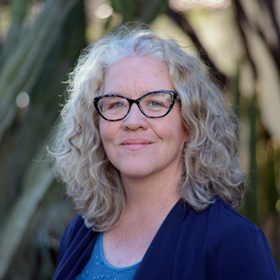Master of City Planning
The Master of City Planning (MCP) Program was inaugurated in the Fall of 1968 and has since graduated over 400 students who have secured positions in planning agencies at all levels of government, in private and public institutions concerned with planning and urban affairs, and in academic and research institutions.
SDSU's City Planning masters degree program is fully accredited by the national Planning Accreditation Board, and a member of the American Collegiate Schools of Planning (ACSP): an academic consortium of more than 100 planning schools offering advanced degrees in planning across North America. As an accredited master's degree program, maintaining our accreditation requires that our students demonstrate their competence as professional planners, and commitment to the values and ethics within our field. Learn more about the Planning Accreditation Board, and its high academic standards for member schools in performance, integrity and quality of trained planners.
MCP Mission
Our mission is to provide graduate students with the knowledge, specialized skills, and professional experience to creatively engage in problem-solving and in the practice of urban and regional planning in public policy contexts; and to equip them with the skills and techniques that will enable them to assume effective, ethical leadership roles in the field of planning. The program also emphasizes an understanding of the broader international context of planning and how regions can respond to or help shape trends into the future.
The program provides the opportunity for students to engage in a wide range of field-based education through an interdisciplinary set of courses. It fosters mutual learning through a participatory experience that emphasizes academic excellence, sound professional preparation, and ethical conduct, with an emphasis on working in the public interest. The program seeks to impart an understanding of the spatial and physical dimensions of planning and design; the challenges of sustainability, livability, environment, mobility, and social equity in shaping policy choices; and the techniques and process of community-building.
Download the 2019 Occasional Planner
For more information:
Contact

